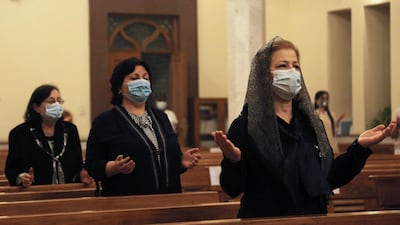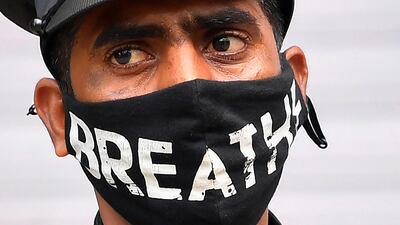Allowing the coronavirus to spread in the hope of achieving herd immunity is "unethical", the World Health Organisation chief said on Monday.
Dr Tedros Adhanom Ghebreyesus cautioned against calls in some countries to let the pandemic run its course until enough people develop the immunity to naturally halt its spread.
"Herd immunity is a concept used for vaccination, in which a population can be protected from a certain virus if a threshold of vaccination is reached," Dr Tedros said.
For measles, it is estimated that if 95 per cent of the population is vaccinated, the remaining 5 per cent will also be protected from the spread of the virus.
For polio, the threshold is estimated at 80 per cent.
"Herd immunity is achieved by protecting people from a virus, not by exposing them to it," Dr Tedros said.
"Never in the history of public health has herd immunity been used as a strategy for responding to an outbreak, let alone a pandemic."
The new coronavirus has killed almost 1.1 million and infected more than 37.5 million since it first surfaced in China late last year.
Relying on naturally obtaining herd immunity in such a situation would be "scientifically and ethically problematic", Dr Tedros said.
"Allowing a dangerous virus that we don't fully understand to run free is simply unethical. It's not an option."
He spoke of the lack of information on the development of immunity to Covid-19, including how strong the immune response is and how long antibodies remain in the body.
Dr Tedros referred to cases where people are believed to have been infected with the virus a second time.
He also warned about long-term health problems of infection, which researchers are only just beginning to understand.
Fewer than 10 per cent of the population in most countries are believed to have contracted the disease, meaning most countries remain susceptible, Dr Tedros said.
"Letting the virus circulate unchecked, therefore, means allowing unnecessary infections, suffering and death."
Overall, it is estimated that 0.6 per cent of people who contract Covid-19 die from the disease, Maria Van Kerkhove, the WHO's technical lead on the virus, told Monday's briefing.
"That may not sound like a lot," Ms Van Kerkhove said.
But she said it was a lot higher than for influenza and that "the infection-fatality ratio increases dramatically with age".
While the elderly and people with underlying health conditions are clearly most likely to become seriously ill with Covid-19, Dr Tedros said they were not the only ones at risk.
"People of all ages have died," he said.
The UN agency voiced optimism at the speed at which vaccines against the virus were being developed, with 40 potential treatments in clinical trials, including 10 in late-stage Phase-3 tests.
US President Trump has repeatedly promised that a Covid-19 vaccine would be ready before next month's US elections.
But WHO chief scientist Soumya Swaminathan said the vaccines in late-stage trials were not expected to produce enough data to request regulatory approval until December at "the earliest".
"Into the early part of 2021, we expect a number of trials to start providing data for regulators to look at," Dr Swaminathan said.
After that, regulators would need to go through the data before making their decisions.
"This is going to be a lot of data and also for the WHO," she said.
Last week, Dr Tedros said a Covid-19 vaccine could be available by the end of this year.
More than 160 countries have joined the WHO's Covax vaccine facility.













